Recent and Featured CDC Podcasts

Don’t Let Loud Noise Damage Your Hearing
Don’t let loud noise damage your hearing. Learn how to protect your hearing now. Created: 10/18/2017 by National Center for Environmental Health (NCEH). Date Released: 10/18/2017.
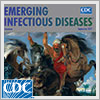
Analysis of Whole-Genome Data in a Public Health Lab
Dr. Kelly Oakeson, a bioinformatics and genomics research analyst with the Utah Department of Health, discusses bioinformatics and genomics research. Created: 10/17/2017 by National Center for Emerging and Zoonotic Infectious Diseases (NCEZID). Date Released: 10/17/2017.
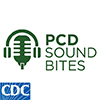
Detecting Diabetic Blindness in Low-Income Mexican Adults
This podcast features Kenny Mendoza-Herrera, a former graduate student at the National Institute of Public Health of Mexico and one of the winners of PCD’s 2017 Student Research Paper Contest. Kenny answers questions about his winning research and what impact his study has on the prevention of diabetic blindness and public health, particularly for Mexican adults. Created: 10/9/2017 by Preventing Chronic Disease (PCD), National Center for Chronic Disease Prevention and Health Promotion (NCCDPHP). Date Released: 10/9/2017.

Early Onset Childhood Obesity and Risk of Metabolic Syndrome
This podcast features Lorena Pacheco, a doctoral student at the University of California San Diego and one of the winners of PCD’s 2017 Student Research Paper Contest. Lorena answers questions about her winning research, which focuses on the relationship between early onset obesity as a risk factor for increased metabolic syndrome in Chilean children. Created: 10/9/2017 by Preventing Chronic Disease (PCD), National Center for Chronic Disease Prevention and Health Promotion (NCCDPHP). Date Released: 10/9/2017.

Geographical Overlapping of Obesity, Heart Disease, and Type 2 Diabetes
This podcast features Kayla Smurthwaite, an undergraduate student at Australian National University in Canberra, Australia, and one of the winners of PCD’s 2017 Student Research Paper Contest. Kayla answers questions about her winning research and what impact her study has on chronic disease prevention and public health. Created: 10/9/2017 by Preventing Chronic Disease (PCD), National Center for Chronic Disease Prevention and Health Promotion (NCCDPHP). Date Released: 10/9/2017.

Improving Healthy Eating Through Social Marketing
This podcast features Emily Liu, a freshman at the University of Pennsylvania and one of the winners of PCD’s 2017 Student Research Paper Contest. Emily answers questions about her winning research and what impact her study has on obesity prevention and public health. Created: 10/9/2017 by Preventing Chronic Disease (PCD), National Center for Chronic Disease Prevention and Health Promotion (NCCDPHP). Date Released: 10/9/2017.

The Use of Compañeros in Childhood Obesity Prevention
This podcast features Katie Arlinghaus, a doctoral student at the University of Houston and one of the winners of PCD’s 2017 Student Research Paper Contest. Katie answers questions about her winning research and what impact her study has on childhood obesity prevention and public health, particularly for the Hispanic community. Created: 10/9/2017 by Preventing Chronic Disease (PCD), National Center for Chronic Disease Prevention and Health Promotion (NCCDPHP). Date Released: 10/9/2017.

Forty Years of Salmonella enterica Dublin in People
Dr. Reid Harvey, a CDC epidemiologist, discusses Salmonella enterica Dublin in People. Created: 10/5/2017 by National Center for Emerging and Zoonotic Infectious Diseases (NCEZID). Date Released: 10/5/2017.

CDC Vital Signs–Cancer and Obesity
This podcast is based on the October 2017 CDC Vital Signs report. Obesity is a leading cancer risk factor. Unfortunately, two out of three U.S. adults weigh more than recommended. Find out what can be done to help people get to and keep a healthy weight. Created: 10/4/2017 by Centers for Disease Control and Prevention (CDC). Date Released: 10/4/2017.

Signos Vitales de los CDC–El cáncer y la obesidad (Cancer and Obesity)
Este podcast se basa en la edición de octubre del 2017 del informe Signos Vitales de los CDC. La obesidad es un factor principal de riesgo de cáncer. Desafortunadamente, 2 de cada 3 adultos en los Estados Unidos pesan más de lo recomendado. Averigüe lo que se puede hacer para ayudar a las personas a alcanzar y mantener un peso saludable. Created: 10/4/2017 by Centers for Disease Control and Prevention (CDC). Date Released: 10/4/2017.
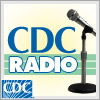
Cancer and Obesity PSA (:60)
This 60 second public service announcement is based on the October 2017 CDC Vital Signs report. Obesity is a leading cancer risk factor. Unfortunately, two out of three U.S. adults weigh more than recommended. Find out what can be done to help people get to and keep a healthy weight. Created: 10/4/2017 by Centers for Disease Control and Prevention (CDC). Date Released: 10/4/2017.
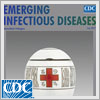
Legionnaires’ Disease and Compost
Dr. Brian Raphael, a CDC research microbiologist, discusses Legionella bacteria in compost. Created: 9/27/2017 by National Center for Emerging and Zoonotic Infectious Diseases (NCEZID). Date Released: 9/27/2017.
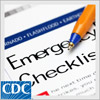
Preventing Mold After a Disaster
![]()
![]() Listen To / Watch This Podcast (0:54)
Listen To / Watch This Podcast (0:54)
When rain or flood waters get into your building, take steps to prevent mold growth. Created: 8/10/2006 by Emergency Communications System. Date Released: 10/22/2007.
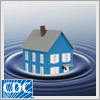
Keep Children Safe From Drowning in Flooded Areas
![]()
![]() Listen To / Watch This Podcast (0:54)
Listen To / Watch This Podcast (0:54)
As the cleanup process begins after a natural disaster, there may be areas of flooding. Watch your children to prevent them from playing in or around flood water. Created: 8/10/2006 by Emergency Communications System. Date Released: 10/22/2007.
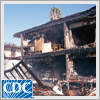
Staying Safe Around Buildings Damaged After a Disaster
![]()
![]() Listen To / Watch This Podcast (0:53)
Listen To / Watch This Podcast (0:53)
After a hurricane, stay away from damaged buildings until building inspectors say it’s safe to enter. Created: 8/10/2006 by Emergency Communications System. Date Released: 10/26/2007.
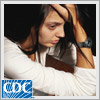
Coping With Depression and Thoughts of Suicide After a Disaster
After a natural disaster, it is normal to feel sad, mad, or guilty—you may have lost a great deal. Created: 8/10/2006 by Emergency Communications System. Date Released: 11/30/2007.

What to Do If Your Appliances Are Wet After a Disaster
If your home was flooded, look for signs that your appliances have gotten wet. Throw away wet or flooded appliances to protect from shock and fire. Created: 8/10/2006 by Emergency Communications System. Date Released: 7/30/2008.

Preventing Chain Saw Injuries After a Disaster
If you must use a chain saw, follow the instructions to be safe. Wear a hard hat, safety glasses, ear plugs, thick work gloves, chaps, and boots. Created: 8/10/2006 by Emergency Communications System. Date Released: 9/24/2008.
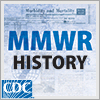
Defining Moments in MMWR History: CDC’s Response to Intentional Release of Anthrax - 2001
On October 4, 2001, shortly after the September 11 attacks in New York City and Washington, DC, the Palm Beach County Health Department, the Florida State Department of Health, and CDC reported a case of anthrax in a 63-year-old man from Florida. This case was first reported in MMWR and marked the beginning of a series of anthrax cases that resulted from intentional delivery of Bacillus anthracis spores sent through the mail. In this podcast, Dr. Sherif Zaki recalls CDC’s investigation and response to the anthrax attacks. Created: 10/12/2017 by MMWR. Date Released: 10/12/2017.
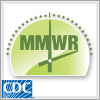
Healthy Hands Hygiene (A Minute of Health with CDC)
Worldwide, almost one and a half million children die each year from diarrheal disease and pneumonia before their fifth birthday. This podcast discusses the importance of regular handwashing. Created: 10/12/2017 by MMWR. Date Released: 10/12/2017.
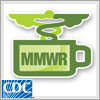
Healthy Hands Hygiene (A Cup of Health with CDC)
Teaching young children personal hygiene can have a positive impact for a lifetime. Encouraging regular handwashing is a good start. In this podcast, Dr. Vincent Hill discusses the importance of regular handwashing. Created: 10/12/2017 by MMWR. Date Released: 10/12/2017.
- Page last reviewed:March 12, 2015
- Page last updated:March 12, 2015
- Content source:


 ShareCompartir
ShareCompartir